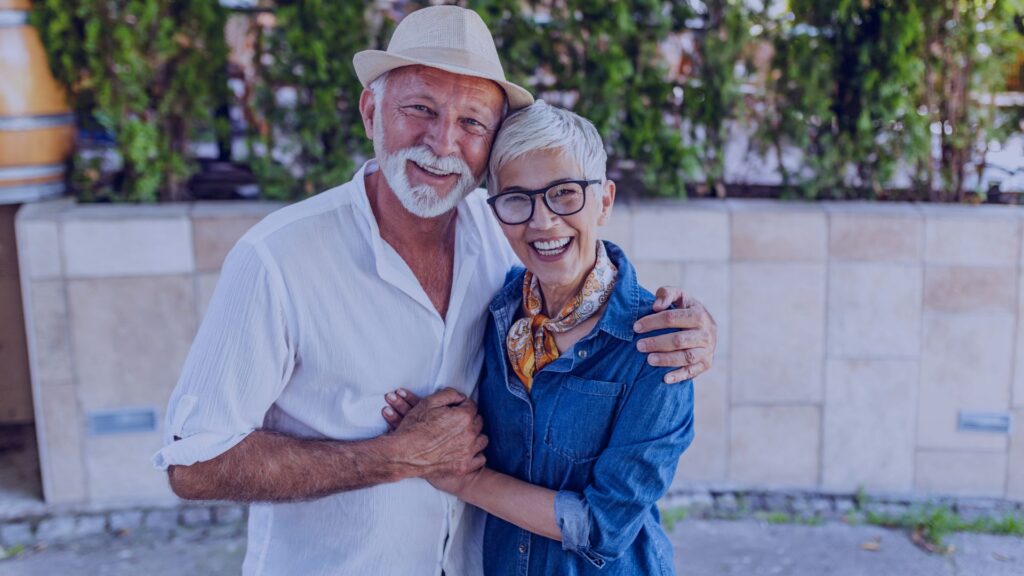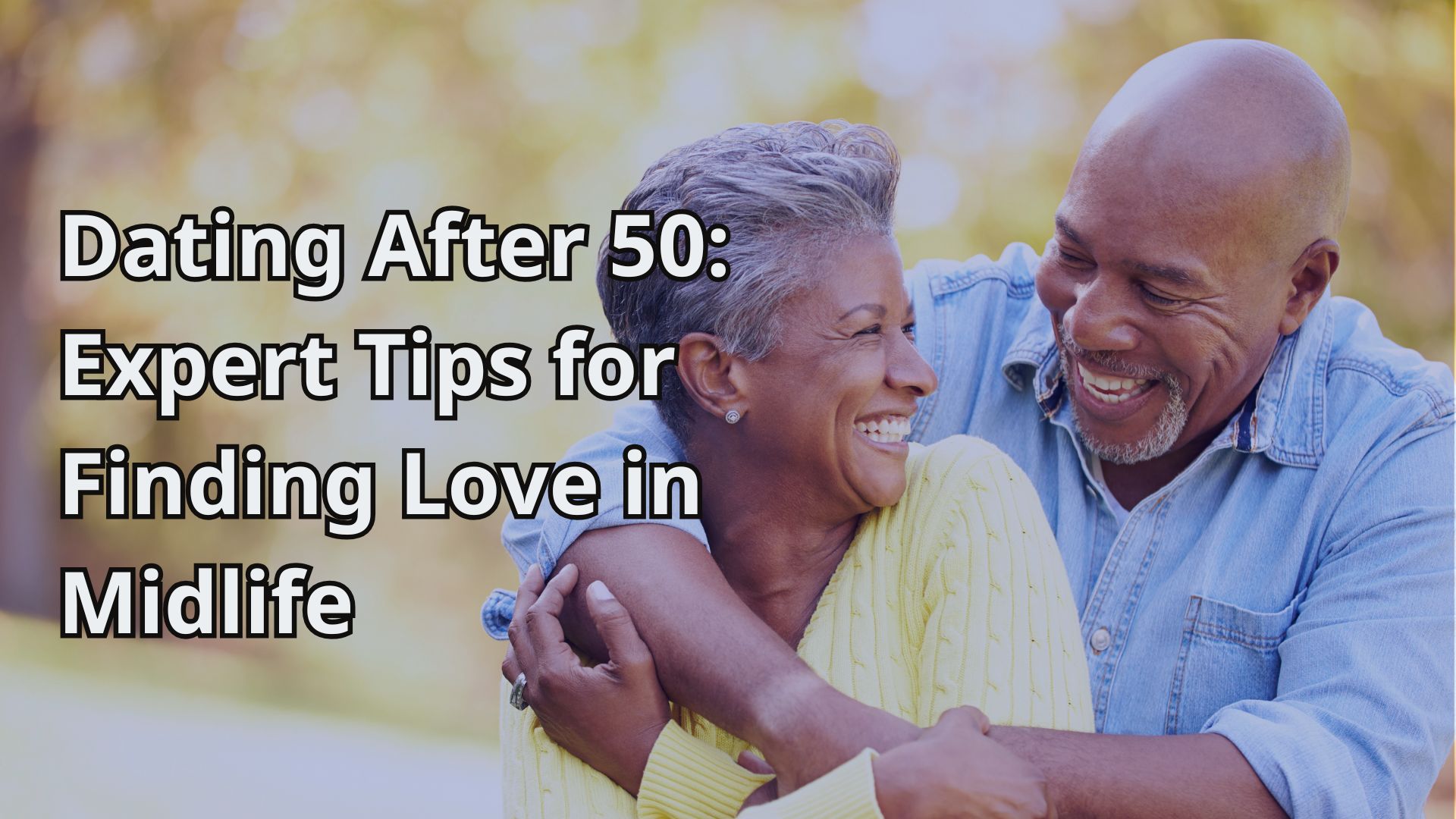I have been a psychotherapist for over 30 years and have helped many people and couples with their relationships. I have observed how love changes as time goes on. Dating at the age of 50 and above is a special experience that comes with wisdom, self-understanding, and new opportunities, but also difficulties that need emotional strength and clear thinking. If you’re getting back into dating after a divorce, loss, or a long time away, this is a time to figure out what love and connection mean to you.
In this article, I will provide tips and advice from my own experience, as well as practical strategies and the most recent research to help you feel more confident when dating after the age of 50. Here’s how to approach finding romance in midlife with purpose and happiness, from using online platforms to creating meaningful connections.
Dating after 50 isn’t about chasing youth—it’s about embracing the wisdom of today and building a love that fits who you are now.
Why Dating After 50 Feels Different
Dating in your 50s is a far cry from the carefree flings of youth. By this age, you’ve likely built a life rich with experiences—careers, families, and personal growth. But these same experiences can make dating feel daunting. In my practice, I often hear clients say, “I know who I am now, and that makes me pickier, but also more vulnerable.”
Here’s why dating after 50 stands out:
- Greater Self-Awareness: By midlife, you’ve had time to reflect on what you want and need in a partner. This clarity can be empowering but also narrows the pool of potential matches.
- Emotional Baggage: Past relationships, divorces, or loss can leave emotional scars. According to a 2023 Pew Research Center study, 36% of divorced or widowed Americans over 50 have tried online dating, often seeking to heal and move forward.
- Time Constraints: With careers, adult children, or aging parents, time is a precious commodity. This makes intentional dating—where every interaction counts—important.
- Technology’s Role: Unlike dating in your 20s, online platforms like SofiaDate, SakuraDate, and LatiDate dominate the scene. One in six Americans over 50 has used a dating app, per Pew Research, but navigating these tools can feel overwhelming.
As I tell my clients, “Dating after 50 isn’t about starting over—it’s about starting anew, with all the wisdom you’ve earned.”
The Rise of Online Dating for the 50+ Crowd
Online dating has transformed how people connect, and for those over 50, it’s often the go-to method. In my work with clients, I’ve seen both the frustrations and triumphs of platforms like SofiaDate and SakuraDate. A 2024 Forbes Health study found that 44% of dating app users over 50 seek serious relationships, while only 24% are looking for casual hookups.
Why Online Dating Works for Midlife
- Wider Reach: Apps connect you with people outside your immediate social circle, crucial when most peers are married or settled.
- Filtered Preferences: Platforms like SofiaDate use compatibility quizzes to match based on values, a feature my clients find invaluable.
- Control and Pace: You can engage at your own speed, pausing or restarting as needed.
Nevertheless, online dating isn’t without pitfalls. Scams, outdated profiles, and the sheer volume of options can feel disheartening. A 2025 report notes that 55% of online daters have faced issues like fake profiles or unwanted messages.
My Top 5 Tips for Online Dating Success
Based on my experience counseling singles, here’s how to make online dating work for you:
- Craft an Interesting Profile: Be honest about your interests and intentions. Include recent photos and a bio that reflects your personality. “Your profile is your first impression,” I often say. “Make it a true reflection of you.”
- Set Clear Boundaries: Decide what you’re comfortable sharing early on. Avoid oversharing personal details until trust is established.
- Screen Thoughtfully: Look for profiles that align with your values. Pay attention to red flags, like vague answers or overly polished photos.
- Take It Offline Sooner: Prolonged messaging can create false expectations. Aim to meet in person within 1–2 weeks if the connection feels promising.

Overcoming Emotional Hurdles in Midlife Dating
Dating after 50 often involves navigating emotional complexities. In my practice, I’ve worked with clients grappling with fear of rejection, trust issues, or the pressure to “get it right” this time. Swipe-based dating apps can increase anxiety and depression, particularly for those over 50 who feel overwhelmed by choice.
Common Emotional Challenges
- Fear of Vulnerability: Opening up after heartbreak feels risky. I encourage clients to start small and share stories that feel safe.
- Trust Issues: Past betrayals can make it hard to trust new partners. A Pew Research study found that 29% of adults over 50 have looked through a partner’s phone without permission, which reflects trust struggles.
- Comparison to Past Relationships: It’s tempting to measure new partners against an ex-spouse or long-term love, but this can stifle new connections.
Strategies to Build Emotional Strength
- Practice Self-Compassion: Remind yourself that dating is a journey, not a race. Journaling or therapy can help process emotions.
- Reframe Rejection: Instead of internalizing a mismatch, see it as a step toward clarity. “Not every date is meant to be a soulmate,” I tell clients.
- Seek Support: A therapist or support group can provide perspective. My workshops on relationship wellness often focus on building this emotional toolkit.
One client, a 58-year-old divorcee, shared, “After working with Dr. Bolcoa, I realized I was holding onto anger from my marriage. Letting go opened me up to a new relationship that’s healthier than anything I’ve had before.”
What to Look for in a Partner After 50
By midlife, your priorities in a partner shift. In my couples counseling, I’ve seen that compatibility in values, communication, and life goals trumps superficial traits. Some studies found that interpersonal closeness and sexual satisfaction are key predictors of relationship happiness for those over 50.
6 Must-Have Qualities in a Midlife Partner
- Emotional Maturity: Can they communicate openly and handle conflict constructively?
- Shared Values: Alignment on family, finances, and lifestyle is critical.
- Respect for Independence: At 50+, you’ve built a life. A partner should enhance, not disrupt, it.
- Sense of Humor: Laughter eases life’s challenges, especially in later years.
- Commitment to Growth: Are they open to evolving together, whether through therapy or new experiences?
- Physical and Emotional Chemistry: While less about looks, connection—both emotional and physical—matters.
I often ask clients, “What’s non-negotiable for you now?” This question helped a 62-year-old widower identify that mutual respect was his top priority, which led him to a fulfilling relationship after years of hesitation.
The Role of Intimacy and Connection
Intimacy after 50 is about more than sexual attraction—it’s about emotional closeness and mutual understanding. In my work, I have seen couples thrive over the years when they emphasize open communication about their interests and limitations. A Pew Research study found that 65% of adults over 50 say premarital sex is acceptable, which shows how people’s views have evolved.
Overcoming Intimacy Challenges
- Physical Changes: Aging can affect libido or performance. Open dialogue with a partner (and a doctor, if needed) can address this.
- Emotional Intimacy: Sharing fears, dreams, and vulnerabilities builds a stronger bond than physicality alone.
- Pacing: Rushing into physical intimacy can cloud judgment. Take time to ensure emotional alignment.
“Intimacy is about feeling seen,” I tell couples. “Start with small moments of connection—listening, laughing, holding hands—and the rest follows naturally.”
The Social Context: Dating Trends and Statistics
Dating after 50 is shaped by broader trends. Here are key insights from recent research:
- Popularity of Dating Apps: 17% of Americans over 50 have used a dating site or app, with platforms like SofiaDate catering specifically to this demographic.
- Success Rates: 12% of online daters over 50 have entered a committed relationship or marriage via apps, though offline relationships tend to be more stable.
- Gender Dynamics: Men over 50 are more likely to date than women, with 26% of single men in this age group in a dating relationship compared to 10% of women.
- Safety Concerns: 57% of women over 50 feel dating apps are unsafe, which highlights the need for vigilance.
These stats show the importance of approaching dating with both optimism and caution.
My Conclusions as a Psychotherapist
As a therapist, I think dating after 50 is a great chance to learn more about yourself and what love means. It’s not about trying to be young again, but about appreciating the opportunities of this stage of life. People I have helped in this process have found that as they reach their 50s, they experience deeper and more meaningful relationships than ever before.
What’s my advice? When dating, be curious instead of feeling pressured. Be smart when using online tools, but it’s important to meet in person to see if you really get along. Most importantly, believe in your instincts— they have been developed from years of experience. I often say, “You’re not just searching for a partner, you’re searching for someone who brings happiness to the life you’ve created.”
Dating at 50 might be difficult, but it’s also an opportunity to start a new love story that shows who you are now and who you want to be in the future.

